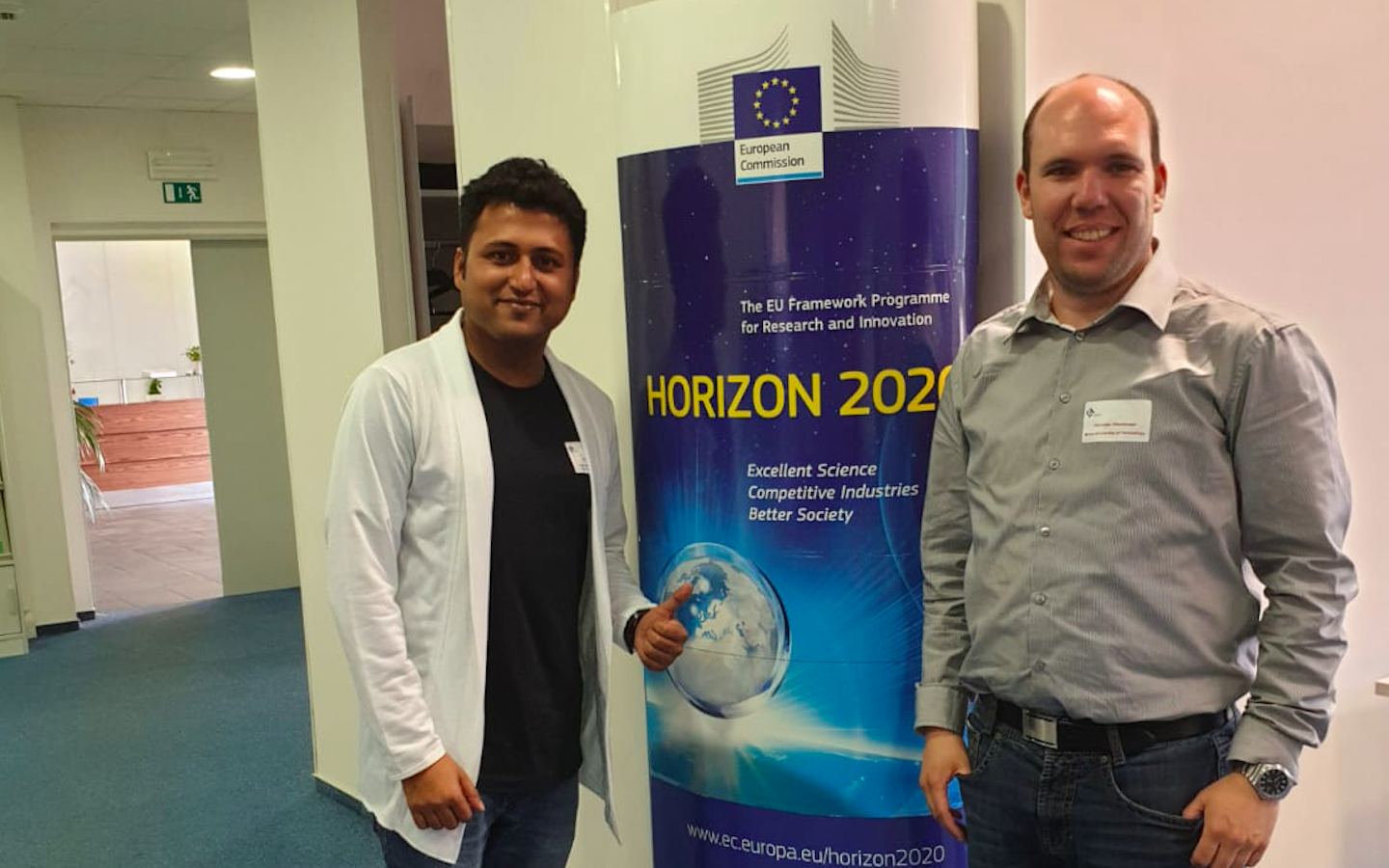2. Apr. 2020
Prestigious Marie Curie Fellowship received two researchers from Martin Pumera´s research group Future Energy and Innovation. Although Christian Iffelsberger and Kalyan Ghosh focus on different topics, they both succeeded and were granted a two years individual fellowships. They both hope to transfer their findings into industrial application in the future and plan on staying at CEITEC BUT for longer.

Since Marie Curie Fellowship is a very competitive and prestigious platform for young researchers, the success of Martin Pumera´s research group is that much bigger. In the competition of almost 10 000 proposals two members of the Future Energy and Innovation Lab at CEITEC BUT received this fellowship and in the upcoming two years will focus on different aspects of energy.
In his work Christian Iffelsberger focuses on the localization and modification of the electrochemical activity of catalytic 2D materials. His main aim is to activate these materials for energy conversion purposes. Although Christian Iffelsberger has partly touched this topic during his Ph.D. studies, there are many new aspects that he would like to explore. “There are several techniques and aspects I haven´t done before. Even though this is a basic research, I´m aiming for some industrial applications in the future. Mainly for hydrogen production,” adds Iffelsberger.
His colleague Kalyan Ghosh also hopes to apply his findings into the industrial production in near future. In addition to the matter of energy production Ghosh focuses on environmental issues and would like to deal with plastic waste. Specifically used PET bottles. “I am focused on converting biomechanical energy from human motion into electrical energy and save it for later use. To fabricate the device, I plan to use plastic waste, especially PET bottles which are a global environmental issue, following 3D printing technique. Overall, you can say that I am concerned with the matter of waste – waste of energy that people produce by walking, running and other movements and waste of resources, aiming for waste to wealth transformation” explains Kalyan Ghosh.
For both researchers it is the first time they applied for Marie Currie Fellowship. “We will receive funding to pay for conferences, buy needed material or to cover any additional costs of our projects. However, the main aim of this fellowship is to support us as researchers. It allows us to gain experience and it trains us for future challenges,” says Christian Iffelsberger.
They both agree that they received a great amount of support from the group leader Martin Pumera, rest of the group and people from CEITEC BUT. “I think that was a crucial part of our success. Martin Pumera encouraged us to take part in it and then kept motivating us. We also got help from Jan Bogdan and Grant Office. They helped us with the formal part, polishing the proposals and with the final touches. We are really grateful to all of them,” say Kalyan Ghosh and Christian Iffelsberger. They both move to the Czech Republic mainly because of their group leader. “I had a chance to get to know Martin Pumera in my former University NTU, Singapore. He is a top researcher and highly cited expert, so I wished to join his vibrant team. At first, I came mainly because of him. But very soon I found out that CEITEC BUT is an awesome place for research with cutting-edge instruments and a really good infrastructure,” describes Kalyan Ghosh.
These two young successful researchers believe they will be able to finish their projects in two years as stated in their proposals. “However, we hope that in the best-case scenario there will be some follow-up projects that will allow us to continue in our researches,” closes Christian Iffelsberger.
 Future Energy & Innovation Lab Twitter
Future Energy & Innovation Lab Twitter
Author: Zuzana Pospíšilová


 Share
Share